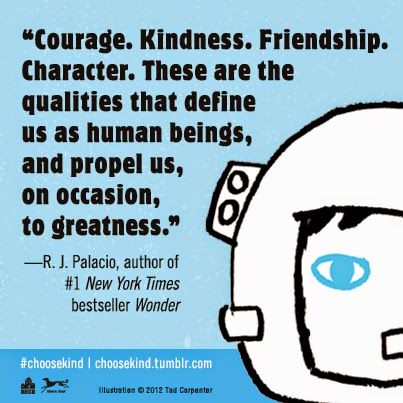In the exploration of Bahá’í teachings, the unique qualities that distinguish human beings from the rest of creation emerge as a profound focal point. These teachings emphasize not merely the existence of human beings but the intrinsic and extrinsic attributes that define humanity’s essence. This article delves into those distinctive characteristics, examining aspects such as consciousness, moral agency, capacity for love, and the pursuit of knowledge, all intertwined with the Bahá’í perspective.
1. The Nature of Human Consciousness
Human consciousness is regarded as a quintessential attribute that separates humans from all other creatures. Unlike animals, humans possess the ability to reflect on their own existence, analyze their thoughts, and engage in abstract reasoning. This self-awareness lays the groundwork for the pursuit of purpose and the realization of potential. In Bahá’í thought, the evolution of consciousness is not merely a cognitive phenomenon; it embodies a spiritual dimension that connects individuals to a higher reality.
Within this framework, individuals are encouraged to cultivate their consciousness, nurturing a reflective mindset that enhances moral understanding and ethical considerations. Bahá’ís believe that the expansion of consciousness is paramount to fostering unity within diversity, as it enables individuals to comprehend the interconnectedness of humanity and the wider universe.
2. The Moral and Ethical Framework
Human beings possess the distinctive ability to discern right from wrong, a feature that Bahá’í teachings celebrate as the moral agency inherent in every individual. This moral framework is not prescribed by external laws alone but is an intrinsic quality that manifests through the conscience and informs personal and collective behavior.
The teachings advocate for the development of virtues such as justice, integrity, and compassion, which serve as the bedrock for societal harmony and individual fulfillment. Encouraging a consistent practice of moral virtues propels humanity toward the realization of its higher purpose, ultimately leading to an era of global peace and collaboration.
3. The Capacity for Love
At the heart of Bahá’í teachings lies the transformative power of love. Unlike any other qualities found in nature, the capacity for love is a uniquely human attribute that transcends mere affection to encompass a profound sense of connection and empathy for others. This divine quality is integral to fostering mutual respect, understanding, and harmony among individuals.
In Bahá’í philosophy, love is not merely an emotional response; it is a dynamic force that encourages selflessness, the embracing of diversity, and the pursuit of the common good. Through love, individuals can unlock their fullest potential, thereby contributing to a larger societal fabric that respects and uplifts every member of humanity.
4. The Pursuit of Knowledge
Human beings are endowed with an insatiable thirst for knowledge, a drive to explore the mysteries of existence, and an aspiration toward intellectual and spiritual advancement. This pursuit is not solitary; it is a collective endeavor that enriches society as a whole. The Bahá’í teachings underscore the importance of education, which is essential for both individual and communal development.
Knowledge, in the Bahá’í context, extends beyond the acquisition of information. It includes cultivating wisdom, understanding the underlying principles that govern life, and applying this knowledge in service to humanity. The integration of science and religion is also emphasized, fostering a holistic approach to knowledge that respects the spiritual and material dimensions of life.
5. The Unique Role of Human Beings in Creation
Bahá’í teachings place humanity in a unique position within the grand tapestry of creation. Humans are seen as the “eye of the worlds,” capable of mirroring divine attributes and facilitating the evolution of the spirit. This perspective imbues human existence with profound significance, as individuals are viewed as stewards of the earth and custodians of their own moral evolution.
This exceptional position comes with inherent responsibilities; individuals are called to contribute positively to society, advocate for justice, and promote the well-being of the planet. Such responsibilities are not solely directed outward but also necessitate an inward journey toward self-discovery and personal transformation.
6. The Interconnectedness of Humanity
Recognition of the interconnectedness shared among all human beings is a pivotal tenet of Bahá’í belief. This understanding transcends geographical, cultural, and ideological boundaries, advocating for a worldview that embraces unity and collaboration. The unique qualities of human beings, such as empathy and understanding, can bridge divides, facilitating engagement across different perspectives.
In pursuing unity, Bahá’ís call for a collective commitment to recognizing the dignity and worth of every individual. By honoring this interconnectedness and embracing diversity, societies can forge a path toward collective advancement, overcoming divisions that often plague humanity.
7. Conclusion: The Path Forward
The teachings of the Bahá’í faith illuminate the unique qualities that constitute the essence of human beings. They encourage reflection on consciousness, moral responsibility, love, and the quest for knowledge, ultimately guiding individuals toward a more profound understanding of their place within the universe. By acknowledging these distinctive attributes, individuals can embark on a journey that not only enriches their personal lives but also contributes to the advancement of civilization as a whole. The path forward lies in recognizing these qualities, nurturing them, and utilizing them to foster global unity and shared prosperity, thereby honoring the divine potential inherent in every human being.
